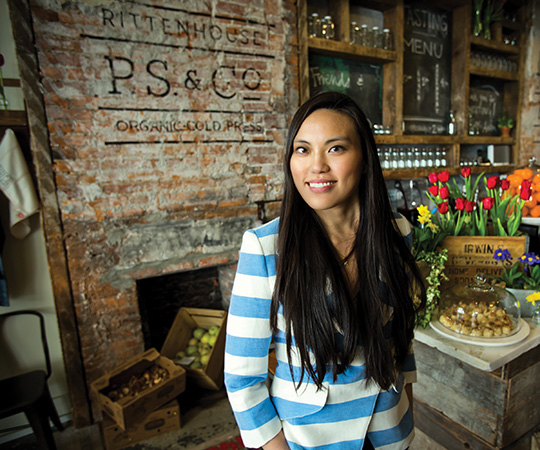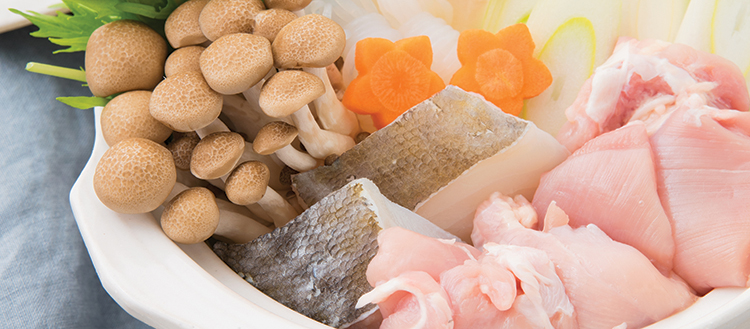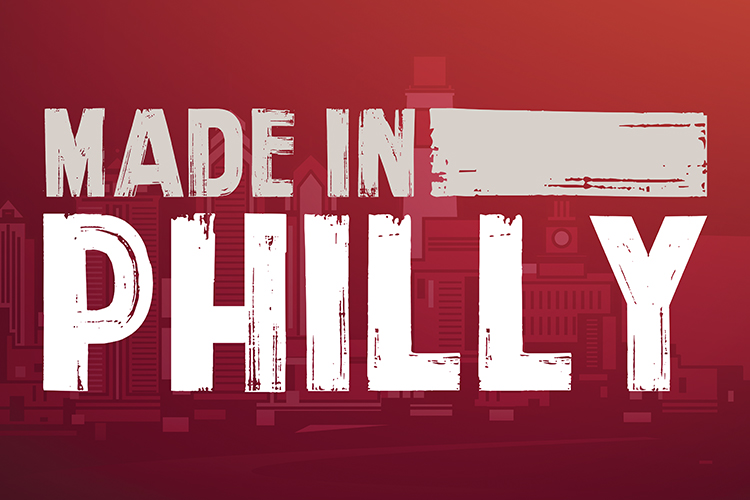Proprietor Andrea Kyan offers vegan food, exercise groups and healthy living strategies at her shop just off of Rittenhouse Square | photo by Tommy Leonardi
by Heather Shayne Blakeslee
>
““I would have been a terrible doctor,” says Andrea Kyan as she sits in the almost-open-for-business garden at the back of P.S. & Co., her brightly lit café that is also, essentially, a healthy living center. It’s not because she doesn’t care about people’s health—she doesn’t want them to have to go to the doctor in the first place.”
Kyan’s shop has a simple sign out front, and the interior is airy and bright, with homey reclaimed wood, exposed brick and clean lines. Just walking in the door makes you feel good, and unlike many cafés, you can’t make a bad choice when you’re ordering. The food is 100 percent organic, gluten-free, vegan, kosher and parvé. There is a good chance that, at any given time, some of the people enjoying a Nori wrap, a macaroon or a cold-pressed juice didn’t realize that the café at 17th and Locust only offered plant-based food. That’s exactly how Kyan wants it. “I don’t announce it all over the place,” she says, “because I really want to get the non-vegans in here. I want them to try and hopefully open up a little … we just want it to be about good food.”
But P.S. & Co., which stands for “pure sweets,” is as much about community as it is food. They offer free yoga classes, host kickboxing training, and the running club meets on Thursdays. Kyan’s love of animals informs all she does, and anyone who brings a shelter or foster dog with them on a run gets a $25 gift certificate. “It was my way of bribing people to get dogs out of the shelter,” she says, a slightly mischievous smile beaming across her face. P.S. & Co. also offers meal plans for people who are thinking about making a change to a plant-based diet, but aren’t yet ready to cook for themselves. When they are ready to cook, Kyan says, “that’s when we roll in workshops. So, then we start teaching people how to make the stuff we make here.”
Her breathless recitation of the programming going on at P.S. & Co., each one a building block to help empower people to lead healthier and more humane lives, is dizzying, but makes sense—not unlike her peripatetic résumé. She studied Physiological Psychology and East Asian Studies at Smith College, Buddhism in India, herbal medicine in China (where her father is from) and silent meditation in Burma, her mother’s birthplace. Kyan was born in Oakland, but grew up in New Jersey. The move from the West Coast was difficult for the family, and Kyan says they went from “Bay Area diversity to being bullied every day because we were the only Asian kids within a 50-mile radius.” She also went on to teach English in Taiwan, completed a post-baccalaureate pre-med program at Bryn Mawr and then did HIV/AIDS and medical research before she decided that her love of food, healthy lifestyles and animals needed to be at the center of her life.
Just after finishing her medical program, she visited a dairy farm with a friend. “That’s when I realized that organic didn’t necessarily mean humane… I think I was in denial about that,” she says. “I didn’t know it—I probably didn’t want to know it—and that was it.” She had been a vegetarian since she was 14, but she then made the switch to veganism. She learned early that the best way to help other people make the change was to let them come to it themselves. “Just be quiet about it,” she says. “Do it, but if they ask questions, share… It seems to catch on more easily that way.” The Buddhism that was “a namesake growing up” is also now more strongly at the center of her world. “When I started going to meditation retreats, that really changed the way my perspective is, and also my reactions to things,” she says. “It’s affected my management style … Frustration and stress doesn’t really set in the same way when it’s not taken in personally.”
She also has a new found love for Philadelphia, a city that she found it difficult to fit into at first. “I love it now because of the shop,” she says. “It’s been great. Year two is really trying to implement more than just the food, but the lifestyle changes…getting people to realize it’s not that hard; if you want to make a change, we’re here as a resource. We’re not pushing anything or proselytizing, but we’re here.” Kyan wants people to know that plant-based living is all about the positives. “It’s not a sacrifice to eat this way. It’s not about deprivation. It really adds to your life.”








The food is delicious. But why is everything served in single-use containers? It really cheapens and demeans the quality and sustainability of eating this way.